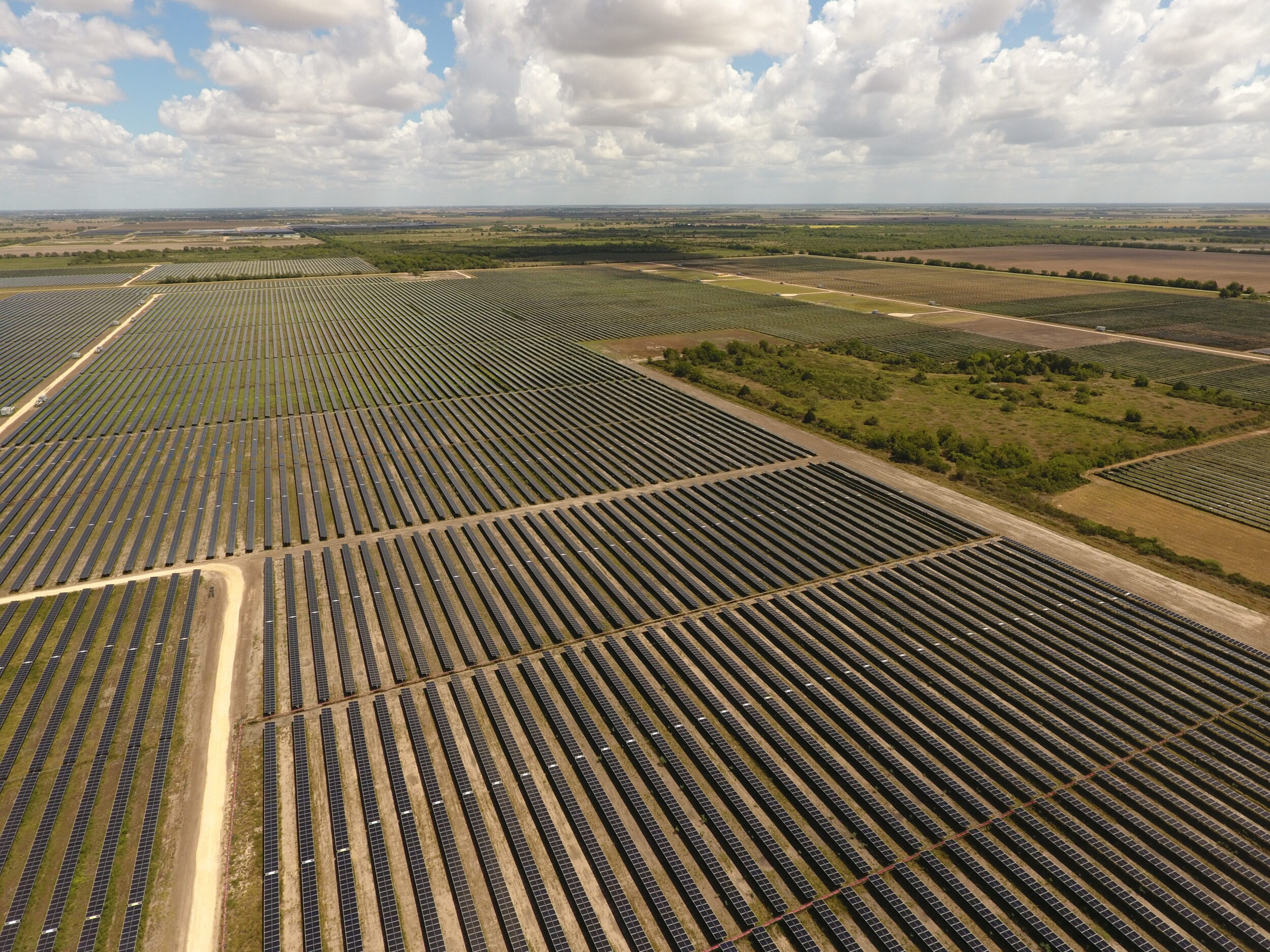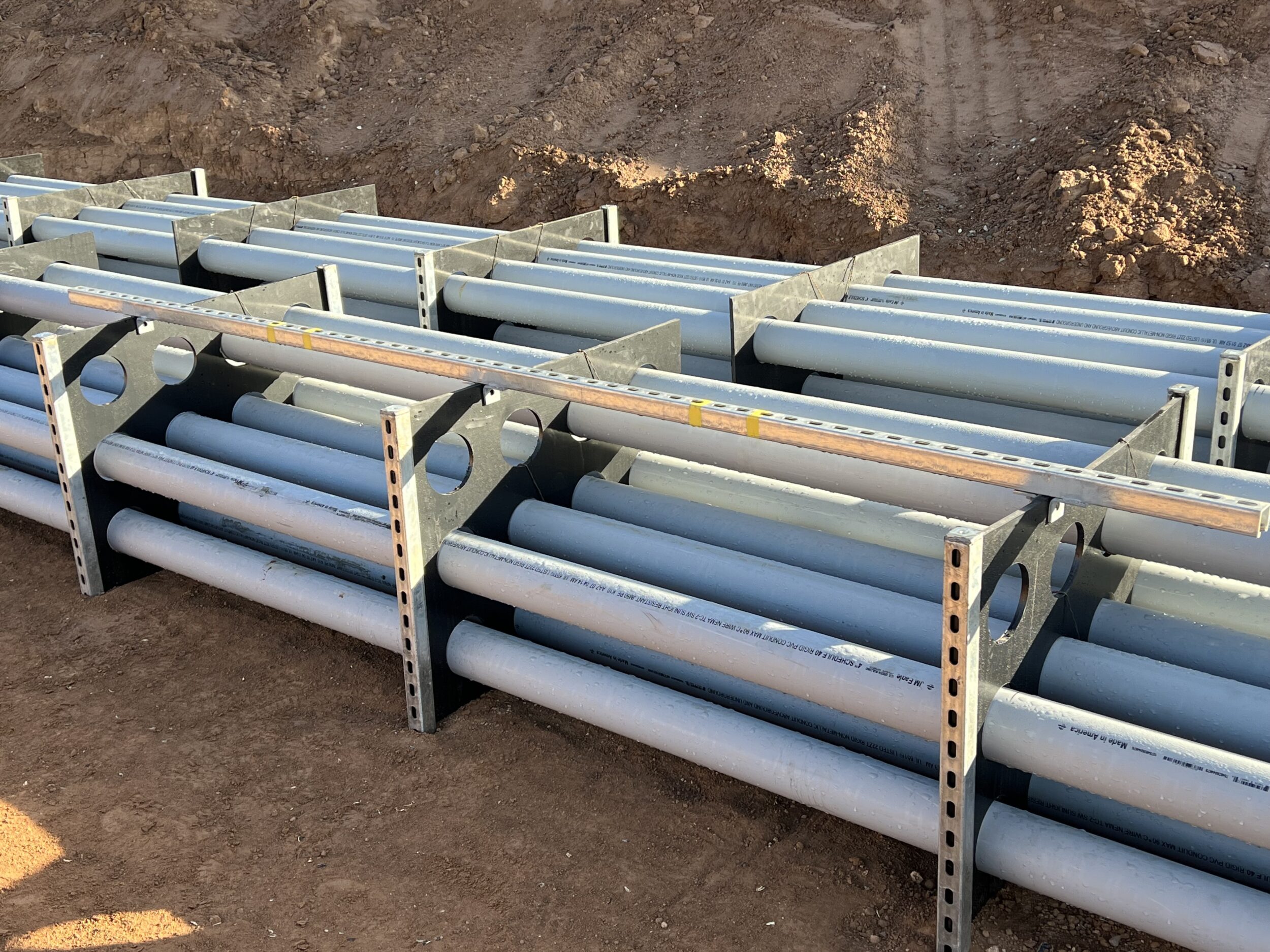More than two years after the global pandemic began, the United States, and the world, continue to face economic challenges. According to The World Economic Outlook Update July 2022: Gloomy and More Uncertain, “the world may soon be teetering on the edge of a global recession, only two years after the last one,” according to Pierre-Olivier Gourinchas, IMF Economic Counsellor and Director of Research. Several countries, including the United States, face inflation and slow growth. Factors such as the war in Ukraine and COVID-19 outbreaks, widespread food insecurity, and social unrest contribute to the slowing economic growth. Rosendin is not immune to these conditions, but the response of Rosendin as an organization is helping our employees and communities to face those conditions and thrive, with the company’s Core Values as the basis for the response.
WE CARE
Demonstrating our care for our employees and communities is central to Rosendin’s culture.
Each of our offices has a unique culture and ways of supporting their local communities and employees. This is most often accomplished through the volunteerism of our employees. Rosendin’s Renewable Energy Group hosted the annual Rosendin Golf Tournament and Auction supporting the Navy SEAL Foundation and raised upwards of $250K for the organization. In August, the team in Anaheim completed the Back to School Drive with the Rosendin Foundation to buy, assemble, and donate over 100 backpacks filled with school supplies for The Boys & Girls Club of Long Beach.
Since 2017, Rosendin’s Oregon team has been a sponsor of the two-day Heroes of the Sea Charity Event, supporting the Pacific Northwest Chief Warrant Officers Association’s tireless efforts. The trans-Pacific submarine cables in Oregon are vital to data centers, and the Pacific Northwest Chapter and its members protect them by patrolling the coastline. For the fifth consecutive year, Rosendin donated $50,000 as a silver sponsor to the association. With the donation from this year, Rosendin’s contributions since 2017 have totaled nearly $250,000.
Rosendin team members from across the country shared their time and expertise through The Rosendin Foundation, hosting Camp NAWIC with the Austin Chapter of the National Association of Women in Construction in Pflugerville, TX. The Camp is designed to teach middle-school-aged female students about career opportunities in the construction industry. This year, 35 girls attended the camp. In Tempe, AZ, Rosendin donated materials and time to install lighting components at Mesa Community College’s softball facilities. The team provided lighting in the batting cages so student-athletes could continue practicing after sundown.
We LISTEN
Staying on top of current events, pricing fluctuations, and stock market volatility are some of the simplest ways we continue to listen to provide the best value for our employees, customers, and partners.
“The utility-scale solar industry, as much or more than any vertical market, can be dramatically impacted by legislative and regulatory mandates along with rising prices driven by the current supply chain constraints impacting all markets,” points out Duncan Frederick, VP of Business Development for RREG. “There is new legislation in effect; the Uyghur Forced Labor Prevention Act (UFLPA), which prohibits the import of finished goods, raw materials, or component goods from the People’s Republic of China (PRC) produced in any part by forced labor or under violation of human rights. As it turns out, some 50% plus of global PV (Photovoltaic) Solar modules/components production are sourced from this Uyghur region, putting a significant portion of U.S. planned Solar PV Plant construction schedules at risk. Combining this with current supply chain price increases driving EPC (Engineering, Construction, and Procurement) contractor project delivery costs up by 15-20%. Our developer and IPP (Independent Power Producer) clients are facing significant challenges to their project portfolio delivery plans.”
Fredericks continues, “While partnering with our clients has always been a long-standing Rosendin tradition for securing sustainable project flows, now more than ever, we’re having to engage with these clients at least 18-24 months in advance of project mobilization to drive collaborative solutions for addressing both problems: module delay schedule impacts and supply chain price increases.”

Over the past 8-10 months, RREG has deployed very specific construction schedule strategies and procurement plans to help mitigate these two key risks facing clients. To address the module delay impacts, RREG collaborated with top clients to deploy different PV plant installation methodologies that front-load most of the Plant Balance of System (BOS) infrastructure and componentry in advance of delayed module deliveries. In most cases, this still keeps projects on schedule, meeting clients’ and customers’ Power Purchase Agreement (PPA) requirements. On the supply chain side, RREG has taken a similar collaborative approach to early-stage procurement planning by leveraging Rosendin’s significant collective purchasing power to secure longer term procurement commitments and commodity hedging contracts under client-issued Limited Notice to Proceed (LNTP) agreements. This has allowed RREG to cap pricing risk and assure timely deliveries.
From a Rosendin risk mitigation perspective, “we also must be mindful of how we cannot allow these risks to waterfall down through our EPC contract commitments,” says Fredericks. “While working proactively with clients to provide these innovative solutions, we have also been successful in making sure that RREG avoids most market risks by crafting new Force Majeure language and Liquidated Damages terms. Thus, removing most all waterfall risk on modules and other key component schedule deliveries and capping performance risk exposure for those items we purchase directly. Getting our clients to agree to these new contractual changes says a lot about just how much they have come to value what the RREG does to help them address these current market pitfalls.“
WE SHARE
We collaborate, inspire and challenge one another.
Purchasing construction materials has become less predictable since the pandemic and global economic conditions, along with fewer workers on the factory floors, shortages in microchips, and distribution struggles (both globally and nationally) have all led to uncertainties. Purchasing agents have become detectives on the hunt for limited supplies.
“While Rosendin hasn’t made major changes to how things are done daily, price needs to be communicated across the enterprise, from Estimating to Operations,” explained Chris Alloway, Senior Purchasing Agent at Rosendin. “By doing this, expectations and surprises for a change order for a piece of

Unistrut Keeping Trench Cards in Place
equipment that purchasing can’t get can be mitigated. There have been instances where substitute solutions have been offered to get around long lead times. For switchgear, we have had cases where the manufacturers wanted to ship gear that wasn’t fully assembled while they wait for the supply chain to catch up.”
“Some of our suppliers or our suppliers’ suppliers have had to let us know that lead times are unpredictable, and it’s important that we relay that when we look at a project or when we bid on a job,” says Alloway. He continues, “It’s important, with the way things have changed, that we share what we know and hear. We’re a large company and should be getting the best information available in the supply chain market and getting the best deals we can. However, we can only do that when we share across departments, offices, and regions. We should also be taking advantage of our size and reputation to provide solutions that our competitors cannot by offering expertise, ideas, and substitutions, to give ourselves a top advantage.”
WE INNOVATE
Rosendin prioritizes innovation in every aspect of what we do.
The state of the world has accelerated innovation in prefab and packaging in ways that are sometimes not that obvious. Steve Rose, Rosendin’s Corporate Director of Prefabrication and Packaging, says, “We have long been working and moving in the direction of ‘just in time’ as a Lean contractor and now find ourselves balancing ‘just in time’ with ‘just in case’. We are ordering materials such as conduit, Unistrut, and copper in bulk, ‘just in case’ and managing the material storage, handling, and prefab and packaging as close to ‘just in time’ for that last mile to the job and the installation.”
Rose continues, “Our BIM, Technology, and Analytics Group is helping that effort by working towards an innovative solution that will allow for greater connectivity, communication, visibility, and transparency across business units.
Allowing for less material purchased for a job than we have historically. By less, I mean getting closer to what is needed than ordering what we ‘think’ we need.”
An example is the work being done by Rosendin’s BIM Prefab and Packaging Group at the hyper-scale data center in Mesa, AZ. The team can better create accurate details that identify what is needed for a prefab build, communicate that to the construction manufacturing facility, ‘the prefab shop’, and they can build with less waste. Since we can more accurately identify what we need for an installation work package, we can better predict and manage what we need when ordering the material.
Another example is when a client on a project required the use of Unistrut for keeping the trench cards in place. With help from electricians in the field, the team developed a way to eliminate the need for ordering and installing rebar to keep conduit duct banks from floating during a concrete pour by welding a square washer on top of the strut in the prefab shop. They further refined the process and changed to putting the cards in place in the prefab shop using Tek screws to hold the cards in place. This change removed the square washer from the top of the strut while still providing a way to keep the cards in place in the strut. It allowed a way to ‘package’ the Tek screws in the packages that went to the field, reducing the amount of loose material the field needed ordered or the time it took for electricians to handle the screw. If needed, the field electricians could still adjust the cards to keep the installed duct banks level per spec requirements. A story pole was also created to keep the trench cards exactly where they needed to be without using tape measures. Greater accuracy allows Rosendin’s teams to use fewer materials and save on labor.
WE EXCEL
The quality of our work will represent us for years to come. We take pride in what we build. It is our legacy.
Rosendin continues to elevate the quality of work performed by ensuring that our workforce is trained on the latest technologies and receives continuous skills training and support. Rosendin’s Workforce Development Team regularly hosts boot camps across the country. The Arizona team, led by Stephan Cole, has completed 19 boot camps, including a pilot Spanish language version. They have also completed seven office boot camps aimed at immersing office employees in hands-on electrical installations to help them understand the skills required of our craft workers. Additionally, the team in Arizona has pioneered, funded, and assisted Grand Canyon University with the development and rollout of pre-apprentice coursework, with the first group of 40 students completing the semester in November.
In North Carolina, Troy Vandine started skills training boot camps and an onboarding program covering basic construction safety. Bobby Emery and his team in Tennessee provided conduit bending training for apprentices at the Gallatin project site and have made bootcamp/workshop training available. The Tennessee team will expand the skills training library in the coming months and expand the audience to include JW-level employees.
In addition, Mario Flores in Texas is just starting but will soon implement similar programs at a project site in Temple. At the same time, Mike Murphy in the Virginia office provides basic electrical training to office employees and skills training to helper classifications.
Rosendin’s Training Department has its sights on creating more video content and learning paths that will complement hands-on skills training. Training is also in the process of rolling out a “Rosendin Reader” program in Quarter 1 of 2023. This program will provide books and higher learning to office and field employees, including leadership, soft skills, management, and communication. ■
https://online.flipbuilder.com/pjyf/kthf/


